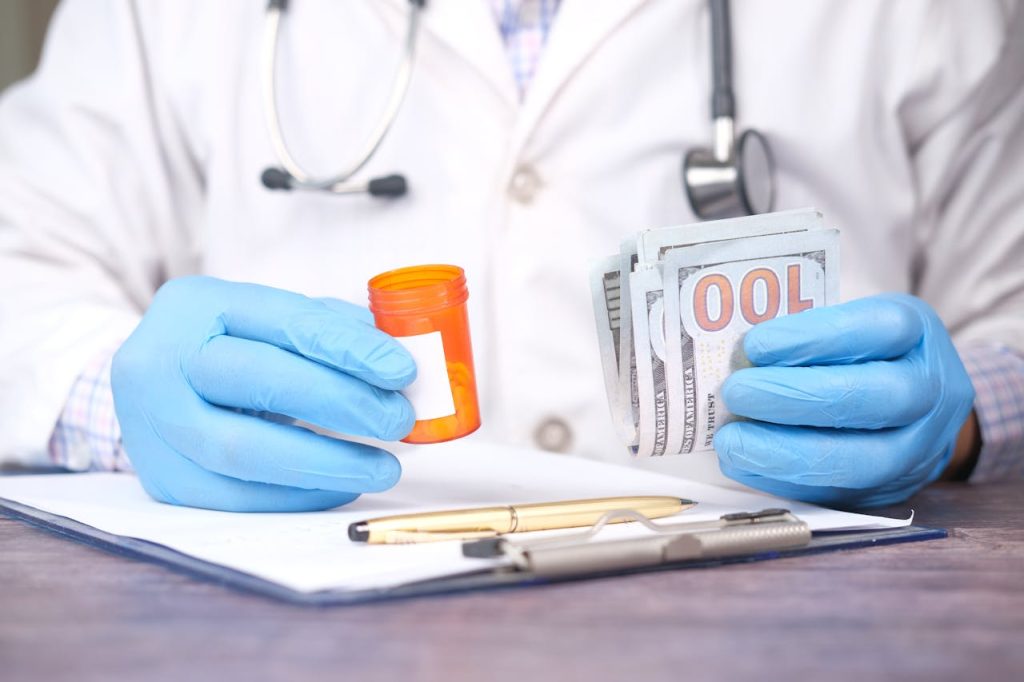
Medical bills are private. You expect them to stay that way. But what if your sensitive health information ended up online, where anyone could see it? This isn’t just a scary story. It’s happening more often than you think. Medical billing data leaks are real, and they can affect anyone who’s ever visited a doctor, filled a prescription, or paid a hospital bill. If you think your information is safe, you might want to look again. Here’s why you should care—and what you can do about it.
1. Medical Billing Data Is a Prime Target
Medical bills contain more than just numbers. They list your name, address, insurance details, and sometimes even your diagnosis or treatment. Hackers know this. They target healthcare providers and billing companies because the data is valuable. Stolen medical information can be sold on the dark web for more than credit card numbers. Why? Because it can be used for identity theft, insurance fraud, or even blackmail. If your medical bills are exposed, you could face more than just embarrassment. You could lose money or have your identity stolen.
2. Third-Party Billing Services Aren’t Always Secure
Many healthcare providers use outside companies to handle billing. These third-party services process, store, and sometimes even share your information. But not all of them follow strict security rules. Some use outdated software. Others don’t encrypt data. If a billing company gets hacked, your medical bills could end up online. And you might never know. Always ask your provider who handles your billing. If it’s a third party, find out what steps they take to protect your data.
3. Data Breaches Happen More Than You Think
You hear about big data breaches in the news, but smaller leaks happen all the time. Sometimes, it’s a lost laptop. Other times, it’s a misconfigured database left open to the internet. In 2024 alone, thousands of healthcare records were exposed in the U.S. Many of these included billing details. The worst part? Victims often aren’t told right away. By the time you find out, your information could already be out there.
4. Your Bills Might Be Shared for “Research” or “Marketing”
Some companies share billing data for research or marketing. They say it’s anonymous, but that’s not always true. With enough details, it’s possible to link bills back to real people. This means your health history could be used to target you with ads or even sold to other companies. If you get strange calls or emails after a hospital visit, your billing data might have been shared. Always read privacy policies before signing anything. Ask how your information will be used and if you can opt out.
5. Medical Debt Collectors Can Spread Your Data
If you miss a payment, your bill might go to a collection agency. These agencies often share information with other companies to track you down. Sometimes, they post details online or in public databases. This can include your name, the amount owed, and even the type of medical service. If you see your medical debt on a public website, it’s not just embarrassing—it’s a privacy risk. Always check your credit report for medical debt and dispute any errors right away.
6. Simple Mistakes Can Lead to Big Leaks
Not every leak is the work of a hacker. Sometimes, it’s just a mistake. A billing clerk might send your bill to the wrong address. A hospital could upload files to a public server by accident. Even a fax sent to the wrong number can expose your information. These errors are common, and they can have serious consequences. If you get someone else’s bill, report it. And if your bill goes missing, follow up with your provider.
7. You Have Rights—But You Need to Use Them
The law gives you some control over your medical information. The Health Insurance Portability and Accountability Act (HIPAA) sets rules for how your data can be shared. But you have to speak up. You can ask for a copy of your medical records. You can request corrections if something is wrong. And you can file a complaint if you think your privacy has been violated. Don’t assume someone else will protect your information. Take action if you think your medical bills are at risk.
8. Protect Yourself with Simple Steps
You can’t stop every leak, but you can lower your risk. Shred old medical bills before throwing them away. Use strong passwords for online health portals. Don’t share your insurance details unless you trust the person asking. Check your credit report for signs of medical identity theft. If you get a notice about a data breach, follow the instructions right away. These steps won’t make you bulletproof, but they can help keep your information safe.
Why Your Medical Bills Deserve Your Attention
Medical bills are more than just paperwork. They’re a record of your health, your finances, and your life. If they end up online, the damage can last for years. You can’t control every company or every mistake, but you can stay alert. Watch your bills, ask questions, and don’t be afraid to push for answers. Your privacy is worth it.
Have you ever found your medical information online or had a billing scare? Share your story or tips in the comments.
Read More
Should You File for Bankruptcy? These Are the Telltale Signs That You Should
7 Medical Issues You Should Get Help For Immediately
The post Your Medical Bills Might Be Shared Online Without Your Knowledge appeared first on The Free Financial Advisor.







